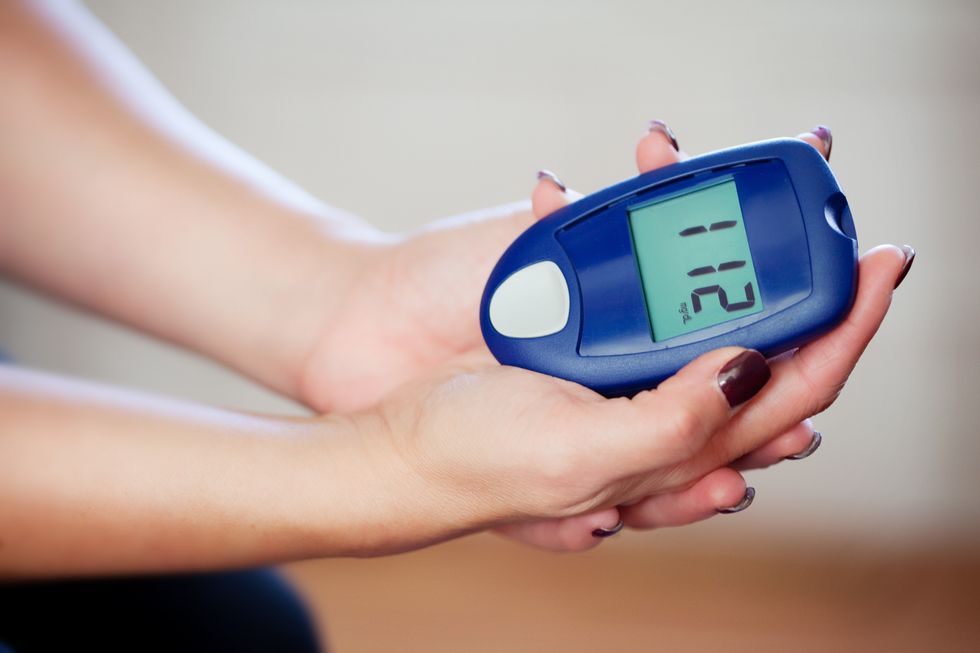How to avoid diabetes
GB NEWS
Everyday ingredients, including popular nut milks and white flour, can wreak havoc on blood sugar levels, an expert has warned
Don't Miss
Most Read
Trending on GB News
Blood sugar monitoring is often associated with diabetes, but unstable glucose levels can lead to other health issues like the accumulation of visceral fat.
To prevent fat from building around the body's midsection, people are typically advised to limit their intake of processed and high-calorie foods.
However, some doctors suggest that the general public should also monitor their blood sugar levels to prevent long-term damage to blood cells.
While sugar is a well-known culprit in blood sugar spikes, medical doctor Mark Hyman has highlighted that white flour may be even worse.
 Drinking more liquids can help regulate blood sugar levels GETTY
Drinking more liquids can help regulate blood sugar levels GETTYHe explained: “If you have belly fat, it is a risk factor for every single age-related disease.
"Liquid calories - such as fizzy drinks, juices, and even seemingly healthy nut milk - could be spiking your blood sugar."
According to Dr Hyman, the same goes for sweetened coffees, teas, and energy drinks.
"If you could do a single thing to dramatically improve your health, it’s get rid of liquid sugar calories," he said.
“The second food is flour, which is everywhere. It turns out that flour is worse than table sugar when it comes to raising your blood sugar.
“When you raise your blood sugar you raise insulin, and when you raise insulin you sweep all the fuel out of your bloodstream and throw it into your belly fat cells."
WebMD supports this claim, stating: “Processed white flour can create a spike in blood sugar, which over time can increase your risk of chronic illnesses like type 2 diabetes and heart disease.”
In fact, multiple sources confirm that white flour has a glycaemic index of 85, compared to sugar’s glycaemic index of 65—making it a more potent trigger for blood sugar spikes.
LATEST DEVELOPMENTS

Dr Hyman recommends omitting sweetened drinks from the diet
TIKTOK
Certain food groups, like carbohydrates, often feature ingredients like flour.
"Carbohydrates which are quickly into the bloodstream have a high glycaemic index," notes the NHS. "This causes a rapid rise in blood glucose levels."
Conversely, when a carbohydrate is slowly digested and absorbed, it has a low glycaemic index.
Oatmeal biscuits, rye bread and buckwheat pasta are all examples of carbohydrates with low-glycaemic index, according to the health body.








